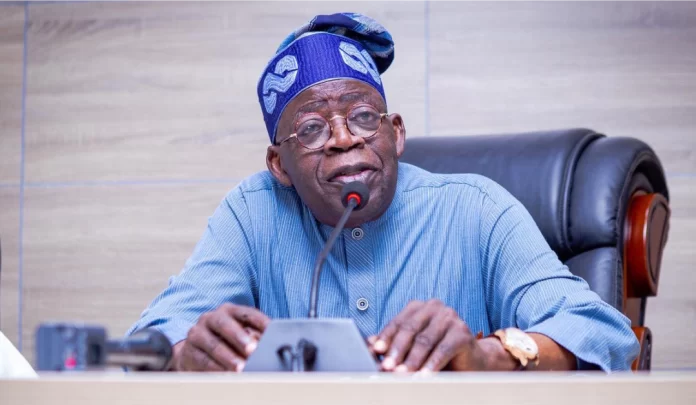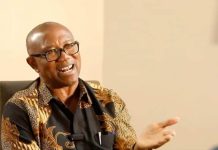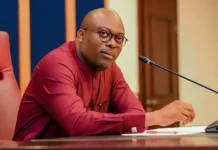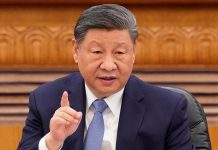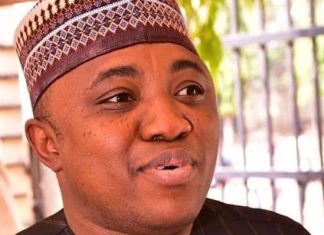Just over four weeks have passed since President Bola Tinubu ended the system of oil subsidies. Many Nigerians wouldn’t have felt out of place had Tinubu waited a little longer before plunging them into the pit of expensive petrol per litre given how long his predecessor had toyed with and given up the idea.
It’s a significant increase from 183 to 500 naira per litre. Nigerians had flocked to the streets in their millions when the price was half what it had been in the past. No Nigerian leader dared to rush into the removal of oil subsidies, but Bola Tinubu did so just minutes after taking over the reins of government.
President Muhammadu Buhari put off eliminating oil subsidies at least three times during his final year in office. Nigerians had no doubt that the decision had turned into a booby trap for whoever succeeded Buhari after his previous unsuccessful attempt, which was marked by discordant tunes from the presidency, the leadership of the Ministry of Finance and the Nigerian National Petroleum Corporation, NNPC, on the one hand, and oil marketers on the other. Bola Tinubu was declared the winner of the 2023 presidential election, but the failure to take action was a cunning move that caused many Nigerians to wonder and project in pity what turbulent ride Bola Tinubu was bound to encounter.
Given his struggles and everything he had to endure just before, during, and after the election, the government’s and the president’s inaction on the oil subsidy issue—who were still negotiating loans and signing contracts on Nigeria’s behalf up until their final hours in office—seemed utterly ominous and dangerous. Although President Buhari technically put an end to the oil subsidy regime by not including it in the 2023 budget, he left the execution of it (along with all of its ominous details) to his successor at the end of June, one month after he would have left office.
Nothing could have been more cowardly or exposed the hot potato decision that the departing administration was making than their lack of resolve. Bola Tinubu, however, took a cautious and possibly naive approach to the situation. The entire situation could have collapsed in his face. He spoke in an urgent and very direct manner about ending the oil subsidy. like a decree in some ways. It happened without fanfare and had a nearly immediate impact. Before long, petrol stations had readjusted their gauge and jerked up the metres.
It may have been the right thing to do in retrospect. It did not allow time for the typical arguing and endless consideration of the suffering that would follow such a difficult decision. Additionally, it prevented labour leaders from making a show of it while lining their own pockets while pretending to be fighting for the common man. Nigerians had already endured unspeakable suffering, and they were prepared to face whatever awaited them in the forest of exorbitant oil prices. Although the outcome was shocking, it was significantly less upsetting than what some had envisioned as Armageddon. In just a few days, Nigerians began to weather the storm, as they have been doing for the past month.
The president’s bold move would soon garner praise, and the choice appeared to be the right one, leaving some to wonder why it had not been made sooner. Things were starting to seem just right. The president’s “immediate effect” actions, which include, among others, the decision to unify the exchange rate and the presidential approval of a student loan programme, are winning him more support from Nigerians than their condemnation. These choices now seem so wise and promising that President Bola Tinubu dared to claim credit and accountability for the decision to remove subsidies.
When he declared the end of the subsidy regime in his inaugural speech, Nigerians now know that he disregarded the advice of his advisers to keep quiet about the divisive subject. If the president’s words had been directed at Nigerians differently, we can only speculate as to where he would have stood and how he would have responded. Would he have admitted to using them or would he have said they were “out of context”? He might have argued that a careless speechwriter accidentally added those words without his knowledge, or he might have just admitted he spoke too much.
Nigerians have merely chosen to put off personal gratification while embracing the discomfort of their current situation by opting to support the president for the difficult choices he has had to make on their behalf. They are still unable to see the promised advantages of this string of business choices, which have the immediate effect of throwing their finances into turmoil. Nigerians are now more economically exposed than at any other time in recent memory. For them, the bitter pill that must be swallowed before the process of national economic healing can begin is the result of the Tinubu administration’s recent monetary and fiscal policies, which are pushing the nation even further into the western neo-liberal orbit.
This is not the same as advocating for leaving Nigerians open to the market forces—a.k.a. the bears—of western capitalism. They need and demand protection from government policies that prevent them from becoming targets of strong economic entities acting alone or in concert from within the nation, but especially from abroad. Following the removal of the oil subsidy, it is proposed to seek to increase the price of electricity by as much as 40% starting next month. This will only worsen the already precarious economic situation of Nigerians.
The electricity companies (the GENCOS and DISCOS etc.) that bought the government-owned monopolies of National Electric Power Authority, NEPA, and the Power Holding Company of Nigeria, PHCN, have been largely dependent on government support, read subsidy, for the entire decade of their existence. They only generate less than 40% of the revenue that the old power monopolies did, and have never even reached break-even point. Abuja covers the income shortfall in a similar manner to how it did for gasoline up until a month ago. But Abuja has decided to stop its support because it is worn out.
But this is not the appropriate time for it. While it may seem like President Tinubu got away with his decision to end the oil subsidy and the potential increase in the cost of higher education, he must be careful not to push his luck too far or too quickly. Otherwise, he might be chewing more than he can bear. He could move swiftly.
Join Television Nigerian Whatsapp Now
Join Television Nigerian Facebook Now
Join Television Nigerian Twitter Now
Join Television Nigerian YouTUbe Now

